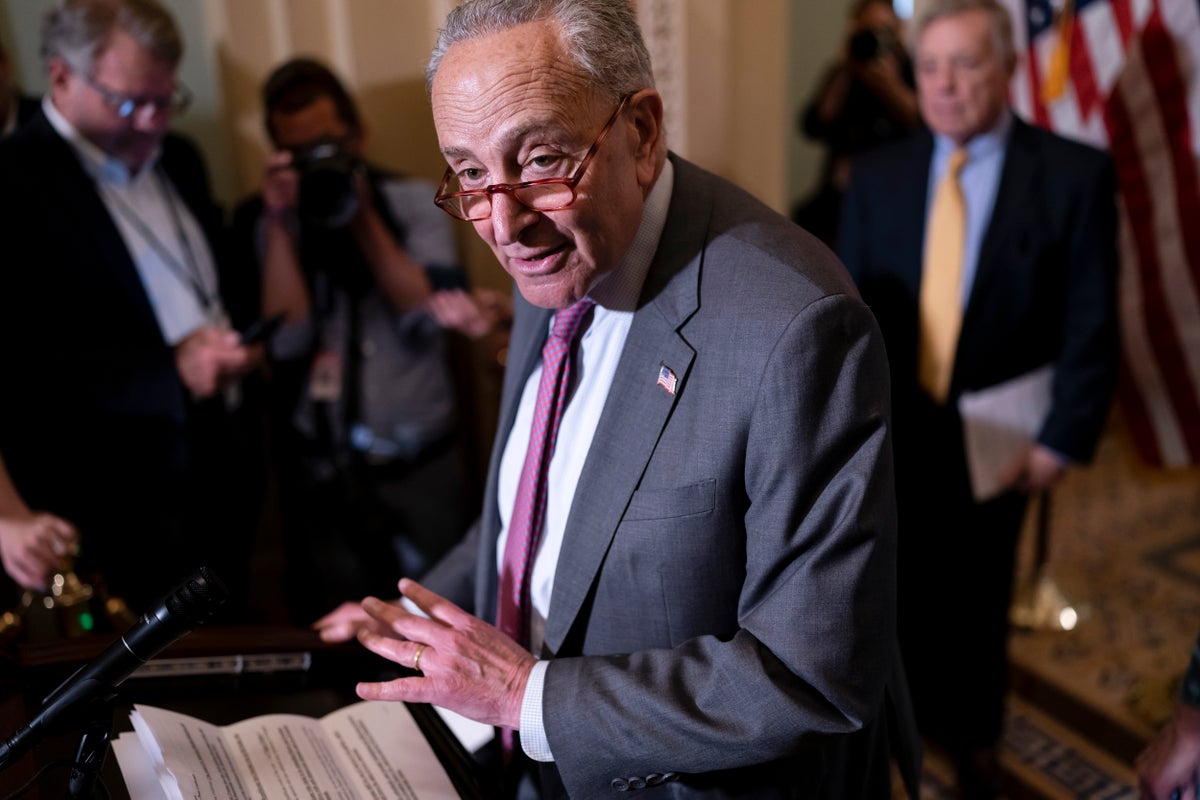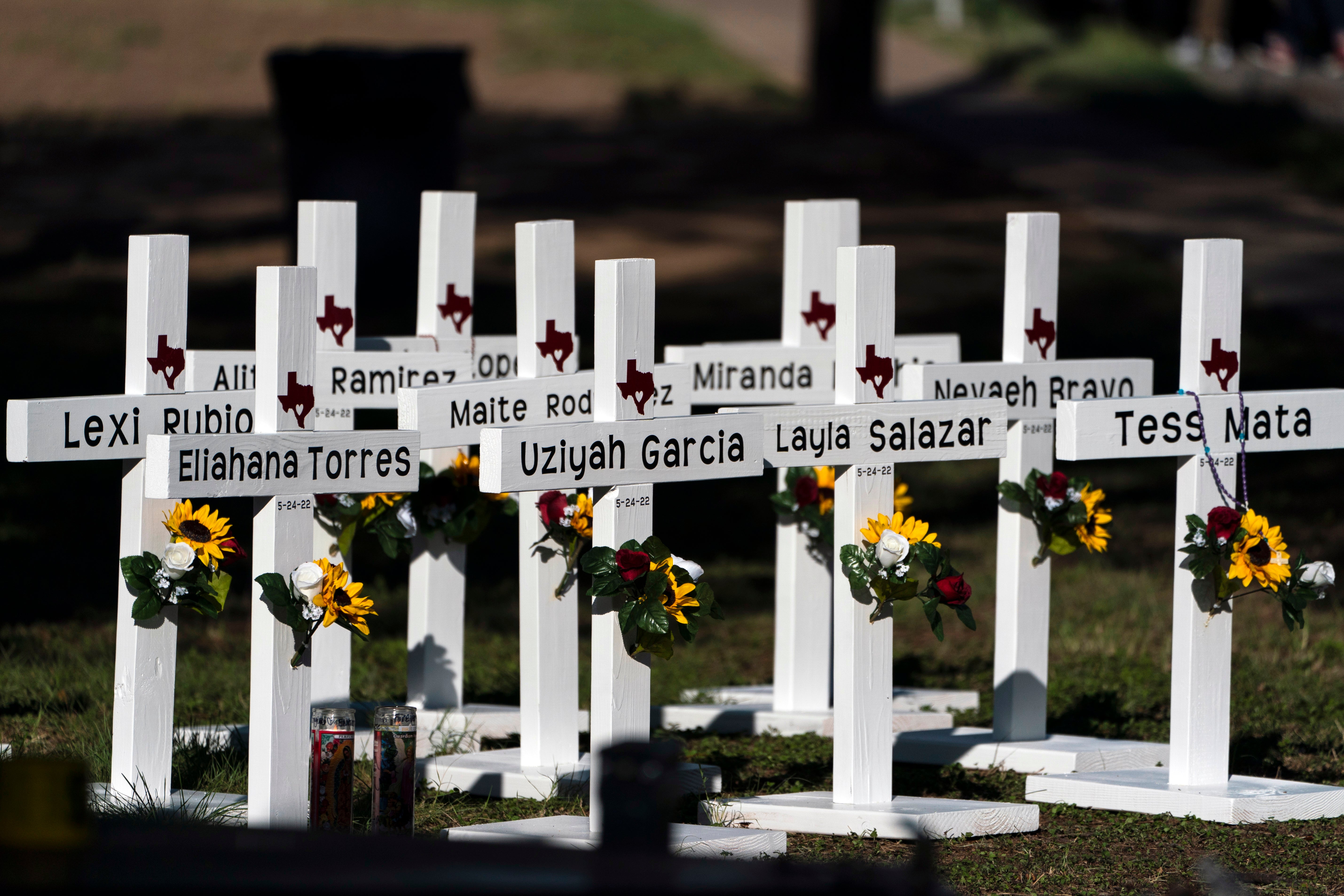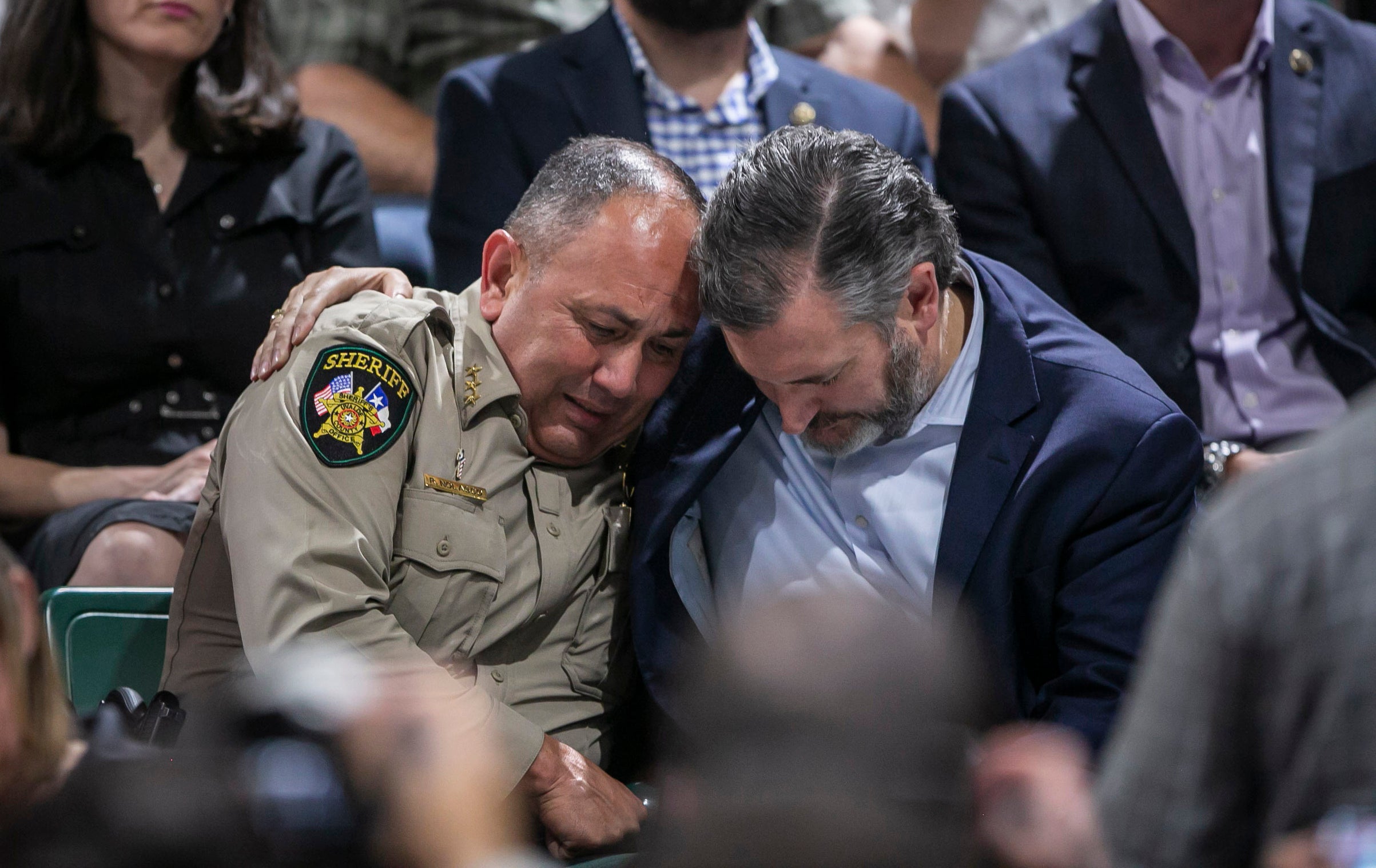
In the wake of the Uvalde, Texas elementary school shooting massacre, calls are once again being made for the US government to address the issue that has plagued the country now for decades.
But enacting resctions on guns is easier said than done. There is little agreement between the two parties on a solution to the gun violence that seems to define American schools. And Washington remains bitterly divided, not least of all in the Senate where Democrats hold a tenuous 50-50 majority.
In a stern floor speech that seemed to reverse earlier comments he had made, Senate Majority Leader Chuck Schumer vowed on Wednesday that the Senate would take up "gun legislation" in the next few weeks and months, but he was strategically vague about what an actual compromise bill could look like.
“Let me be clear: we are going to vote on gun legislation, and the Republicans could let us start doing that as soon as tomorrow, if they simply voted yes on the motion to proceed,” said Mr Schumer, who has called for Republicans to first support passage of a bill addressing domestic terrorism.
There are a few paths that DC lawmakers are likely to pursue if momentum for some kind of bill, however unlikely to pass, reaches the Senate. There are still inter-party divisions to consider, as well as the political reality of Republicans being unwilling to vote for any Democrat-led gun restrictions and the filibuster being firmly in place, but it’s still worth looking at the solutions that DC policymakers are suggesting even if they will go nowhere.
The House-passed bills
The two most obvious options for Democrats to consider in the weeks ahead are two pieces of legislation, originating from the House, which have passed the lower chamber but have yet to receive a vote in the Senate.
Those two pieces of legislation, both focused on the issue of expanding background checks, would make it harder for some dangerous individuals to purchase firearms. One would close the so-called “Charleston Loophole”, which allows gun sales at weapons shows to take place if a background check is not completed within three days; that specific measure would have stopped Dylann Roof, the man who shot up a church in South Carolina, from purchasing at least one of his weapons.
Another bill built off compromise legislation that was pursued by Sens Joe Manchin and Pat Toomey after the Sandy Hook massacre, and would require unlicensed gun sellers to run buyers through the National Instant Criminal Background Check System (NICS), an FBI-run database, before selling weapons.
Both of those bills have already passed the House, and could be brought up for a vote in the Senate in days (were the chamber not in recess). They also, theoretically, would have the best shot of any option of passing the chamber, given suggestions from centrist Republicans like Susan Collins that background check legislation would be the easiest area to reach a compromise that would have Republican support. But Senate Majority Leader Chuck Schumer is taking a different path.

Manchin heads back to the drawing board
Instead of pushing for his previous compromise legislation with Sen Toomey, Joe Manchin is part of a small group of centrist Democratic senators pursuing the chance of compromise with the GOP on a new piece of legislation. Zero details about what that might be have been released.
According to multiple reports, the group has the blessing of Mr Schumer, who is said to be favouring their efforts over pursuing a so-called “accountability vote” destined to fail on the House-passed legislation.
The GOP’s response
GOP Sen Ron Johnson brought up a bill on Wednesday in response to the shooting that would have officially codified a set of guidelines compiled by various federal agencies at schoolsafety.gov; it would have very little practical effect, beyond providing schools with best practices for threat prevention, preparedness and incident response. The bill’s passage would not fund any specific new security measures in schools, nor would it, as Sen Schumer described it on Twitter, “see more guns in schools”. It was blocked from passage via unanimous consent due to the majority leader’s objection.
Few other senators in the Republican caucus have even come up with suggestions for a response to the shooting; Mitch McConnell’s floor speech on Wednesday was notably absent of any calls for new legislation and Senate Republican leadership has been silent on the prospect of formulating a legislative response to the situation.

Red flag laws
One Republican senator who has responded with actual suggestions in the hours since the shooting occurred is Maine’s Susan Collins, who on Wednesday also suggested that the Senate could pursue the passage of so-called “red flag laws”, which empower family members to ask law enforcement to bar specific individuals from carrying weapons if they have concerns about the family member in question’s mental state.
Ms Collins spoke approvingly about such a law in her home state, telling reporters: “That is the kind of law that could have made a difference in this case since, according to press reports, if they are accurate, it appears that he suffered from mental illness.”

Bans on AR-15s
Many gun violence activists have called for the AR-15, the semi-automatic rifle used in a number of recent mass shootings, to be banned due to the high number of casualties the high-powered weapon can cause in a short period of time.
Legislation to do so has no shot of passage in the current Senate. But it does potentially have a future at the state level, assuming such efforts survive the eye of the conservative-tilting Supreme Court.
In New York, Kathy Hochul is pushing for legislation that would raise the minimum age for purchasing such a weapon to 21, a move that could potentially keep the weapons out of the hands of some young adults like 18-year-old Salvador Ramos, the shooter in Uvalde, Texas. Mr Ramos is accused of using such a weapon in the deadly attack on Tuesday in which he was killed after a battle with law enforcement.
If Ms Hochul’s proposal makes it into legislation it would have a much higher chance of passage than any legislation at the federal level, given the Democrats’ solid majorities in the New York state Assembly and state Senate.







